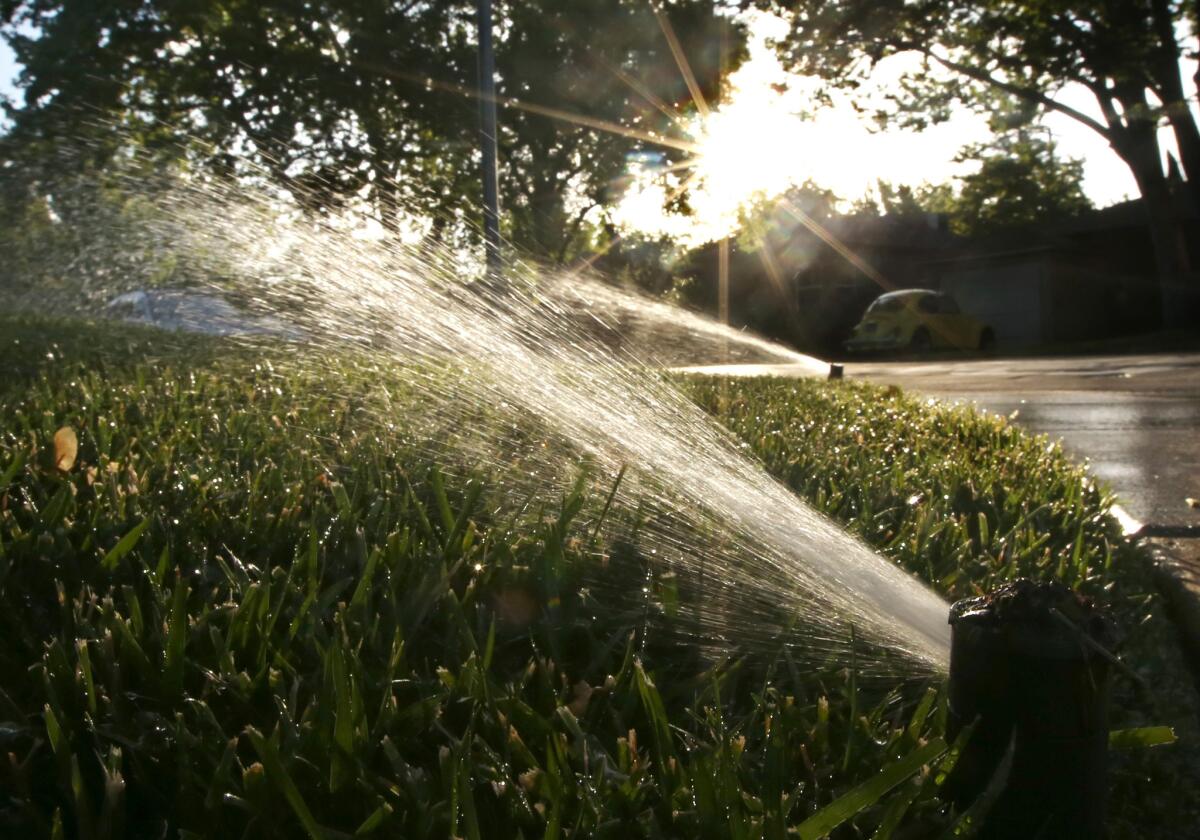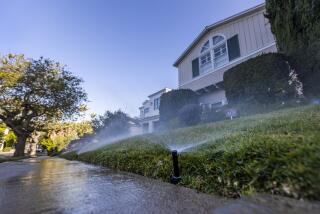Q&A: It’s wrong to fine owner for not watering lawn during drought

Homeowner associations cannot legally penalize members who fail to keep their lawns green.
Question: My homeowner association board won’t let me plant drought-resistant vegetation, saying it’s not in keeping with a “theme of luxury homes” and is contrary to architectural and landscape rules. Because of California’s severe drought I stopped watering my front lawn and removed all flowers. Once my grass turned brown the board ordered me to replant flowers and water the lawn.
Management sent me a letter saying that I violated the covenants, conditions and restrictions and that I will continue to be fined until the flowers are replanted and the lawn turns green through sufficient watering.
Today I got a letter and invoice indicating additional fees and interest charges for “noncompliance” of maintaining my property. The board also is threatening to place a lien on my home if I don’t pay and if I disobey their orders. Is this right?
43 ways to save water without ripping out the lawn
Answer: No, it’s not right, and the board cannot order you to water the lawn. Under these circumstances, additional fees and interest charges for noncompliance of maintaining your property should be removed immediately.
The excuse for watering in keeping with a “theme of luxury homes” is pure nonsense. Under Civil Code section 4735(a), a provision of the governing documents or architectural or landscaping guidelines or policies shall be void and unenforceable if it prohibits the use of low-water-using plants or as a replacement of existing turf.
An association’s governing documents cannot have the effect of prohibiting or restricting compliance with a water-efficient landscape ordinance adopted or in effect pursuant to Government Code section 65595(c), or any regulation or restriction on the use of water adopted pursuant to the Water Code sections 353, 375.
Associations are not prohibited from applying landscaping rules established in the governing documents, as long as those rules fully conform with Civil Code section 4735(a). The Legislature has recognized and affirmed the right of an association to regulate aesthetics. However, the conservation of water, especially during a severe drought, takes precedence over that right.
The law is clear: A homeowners association shall not impose a fine or assessment against an owner for reducing or eliminating watering vegetation or lawns during any period for which either the governor or local government has declared a local or state emergency because of drought.
The California Governor’s Executive Order mandates water use restrictions. Your association is acting in direct contradiction of this edict, and the resulting fines, assessments and penalties are void and unenforceable.
Placing a lien on your home for what the association deems as noncompliance violates the law. Should you be forced to take legal action to obtain a stay or remove a pending lien, the association will be subjecting its members to liability.
A board’s duty to uphold laws and policies pertaining to the association clearly include enforcement of government-mandated water-reduction programs. The board cannot place you in a position in which you must decide whether to violate the association’s architectural and landscape rules, risking a cloud on your title, or to violate the government’s emergency water control regulations and face consequences imposed by the state.
The conflict your board created must be resolved by giving preference to state laws.
As a titleholder, it is much better for you to follow the law and then pursue reimbursement of your costs from the association and/or the management company that unlawfully fined you.
Zachary Levine, a partner at Wolk & Levine, a business and intellectual property law firm, co-wrote this column. Vanitzian is an arbitrator and mediator. Send questions to Donie Vanitzian, JD, P.O. Box 10490, Marina del Rey, CA 90295 or [email protected].
ALSO:
Opinion: Don’t gravelscape L.A.
Newer appliances that can save water
43 water-saving tips for any household
More to Read
Inside the business of entertainment
The Wide Shot brings you news, analysis and insights on everything from streaming wars to production — and what it all means for the future.
You may occasionally receive promotional content from the Los Angeles Times.










